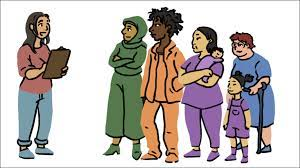Legal Controls Over Employment (8.4)
- Thiago Casarin Lucenti
- Nov 4, 2025
- 2 min read
Governments oftentimes create regulations to control employment issues. These are called legal controls. Such controls are important to avoid businesses from taking advantage of workers in an unbalanced relationship.
Discussion (3m): Do you know of any way governments creates rules, regulations and laws to control the employer-employee relationship?
Regulations on Unfair Dismissal:

Workers can take legal action (sue) businesses which are believed to have dismissed a worker unfairly, for example:
- Gender;
- Pregnancy;
- Race.
Regulations on Employment Contracts:
It's illegal in some countries to employ a worker without a contract:
- A contract is a legal document between workers and employers to clear duties and responsibilities of both parties;
- Wages;
- Titles;
- Responsibilities;
- Holidays.
Laws on Discrimination:

There are regulations to prevent discrimination in recruitment and treating of workers - it allows legal action against employers;
- Age, gender, religion, skin color, disability.
Regulations on Health and Safety of Workers:
There are many laws to prevent workers from injuries and discomfort at work:
- Safety equipment;
- Appropriate lighting and temperature;
- Safe working conditions in general.
Such laws also enforce workers to be cautious to avoid accidents at work (reckless attitude is a reason for dismissal);
- Accidents in the workplace increase costs and reduce output.

Regulations on Legal Minimum Wage:
Countries have a minimum legal wage which every worker is entitled of;
- It helps keeping businesses from exploiting workers;
- It creates the a minimum level of income any worker should receive from its employer.

To-Do-List:
Test Yourself (p. 120)
Case Study - Unfair Dismissal (p. 120)
Chapter 8 - Recruitment, Selection and Training of Workers



Comments